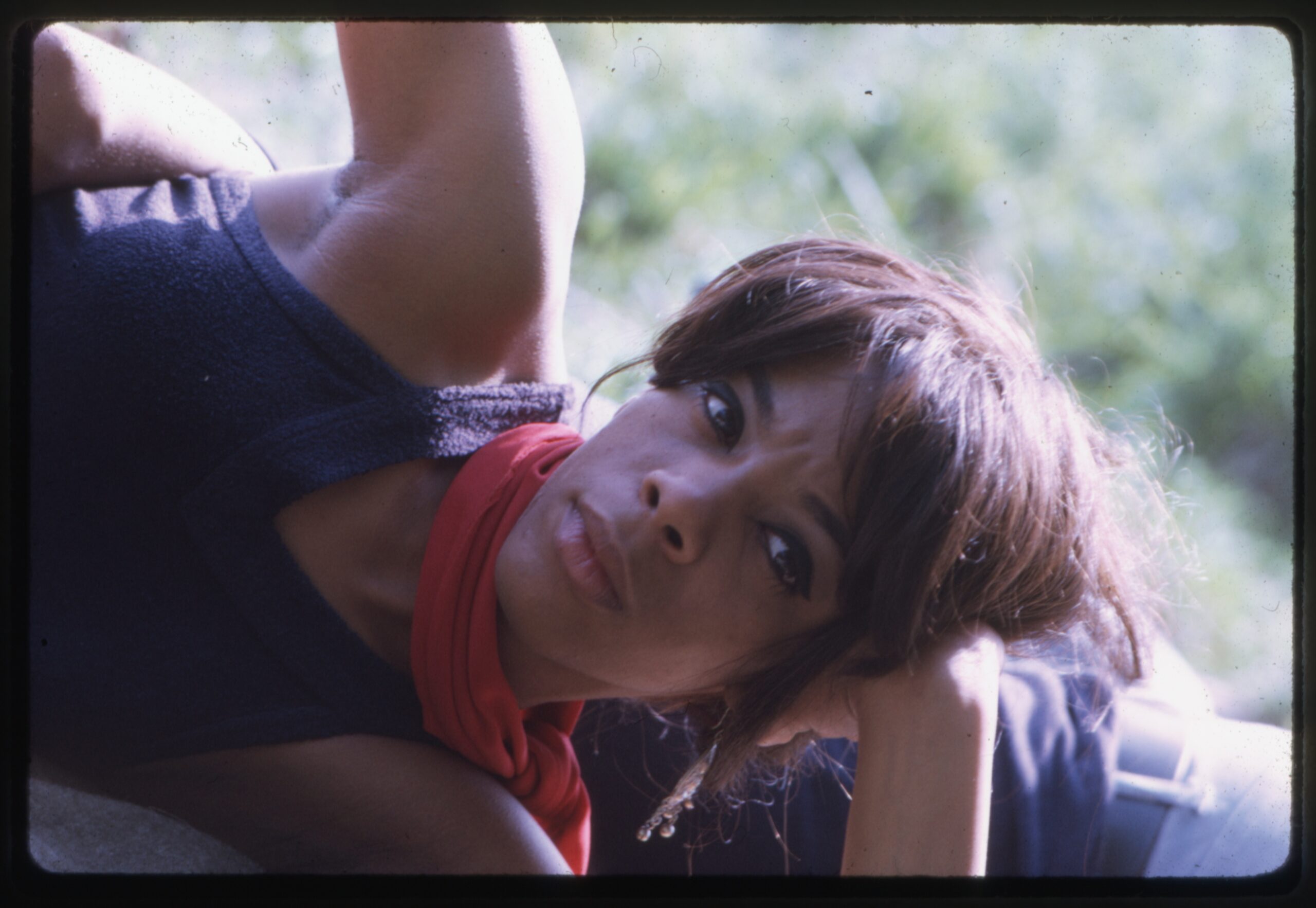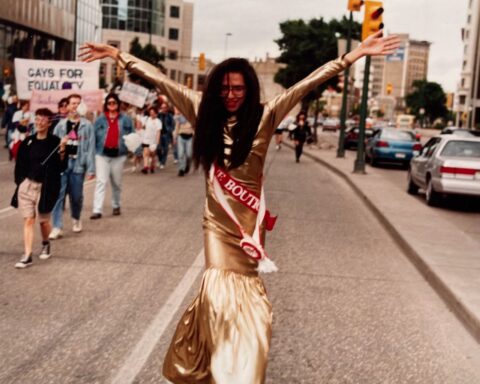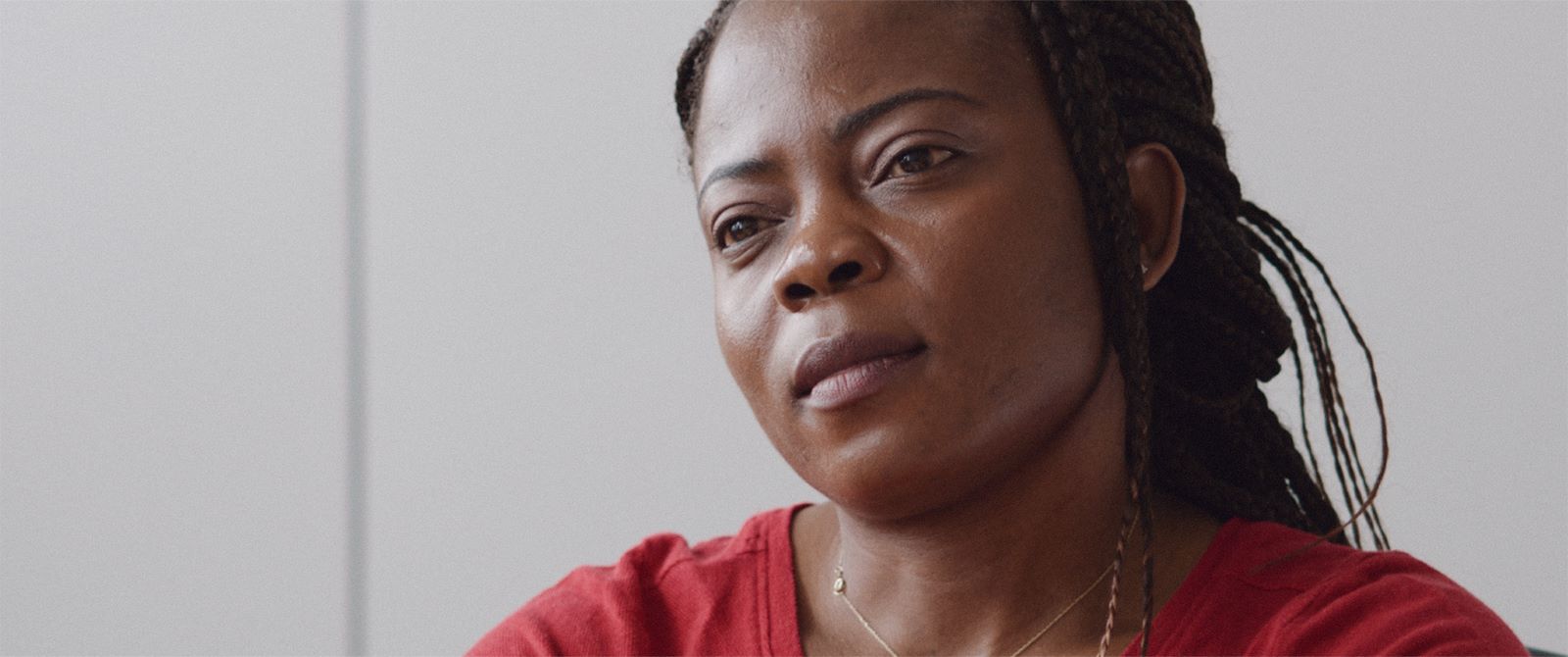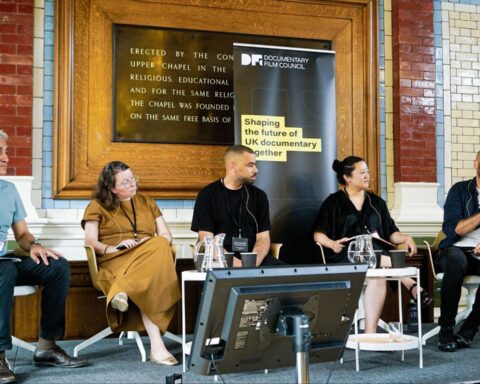With her scintillating, seductive voice, Donna Summer was the queen of late ’70s’ dance music. She brought gospel inflections and intensity to music while embracing the possibilities of electronic instrumentation and repetitive, infectious rhythms. Beyond the lip-gloss, big hair, flowing dresses, and lascivious cooing there was a powerful figure fighting to express her own voice, overcoming previous trauma and navigating the perils of fame, family, and fortune.
Oscar winning filmmaker Roger Ross Williams (Life, Animated) collaborated with Summer’s daughter, actor/filmmaker Brooklyn Sudano, with Love to Love You, Donna Summer, a rich, remarkable documentary that delves as deeply into Summers’ family life as it does her public persona. Remarkably unflinching, the film manages to weave this complex story through decades of the disco diva’s life, using contemporaneous footage augmented by revealing audio interviews to craft a unique portrait of this iconic talent. (Read the POV review of Love to Love You, Donna Summer here.)
POV spoke with the directors of Love to Love You, Donna Summer following the film’s Berlinale premiere and prior to its Hot Docs screening.
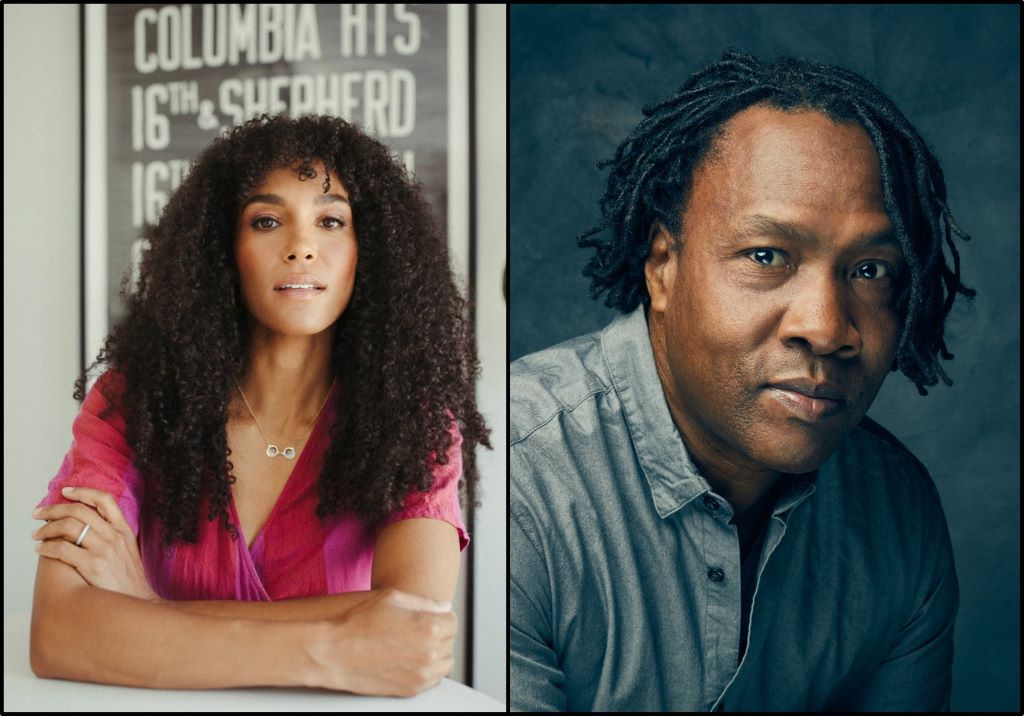
POV: Jason Gorber
BS: Brooklyn Sudano
RRW: Roger Ross Williams
The following has been edited for clarity and concision.
POV: Brooklyn, let’s start with you. Can you talk about how you came into telling this story, and working with Roger, seemingly the busiest man in cinema! [Williams premiered the drama Cassandro at Sundance this year.]
BS: It had been a few years since my mom had passed, and I had my own daughter who was about two and a half at the time. I was doing press for another show, and fans would come up to me to talk about how much my mom’s music had impacted them. I felt that there was so much to my mom’s story and life and artistry that hadn’t been parsed out. There was this monolithic idea of her persona, and she was so much more complex than people allowed for. I wanted to peel back all of those layers, allowing the world to understand her as those of us closest to her did.
Roger is a miracle that I am just so grateful for. My intro to his work was through Life, Animated. As soon as I saw that, I knew this was person who truly knows how to tell an emotional, impactful story. He was the most phenomenal collaborator, and from the moment we sat down, we both wanted to tell a very similar story. There was an immediate trust because of that.
POV: Roger, you’re well aware that having a family member attached to these kinds of stories can often make things too close to have any objectivity. Can you discuss how you came to the project, and how you navigated that with Brooklyn?
RRW: I had always wanted to make a music doc about an artist. I was a huge Donna Summer fan – I won my high school hustle championship back in the day! I thought of her as a subject years before meeting Brooklyn. I read Donna’s autobiography, and realized that the complexity of her story made it so interesting. Julie Goldman, our producer, said I had to have a meeting with Donna’s daughter, and that she wanted to co-direct. Now, I had never co-directed anything, so I was very hesitant that Brooklyn was going to come in, demand a flowery portrait of her mother, and not deal with any of her complications and complexity. The first thing Brooklyn said to me was she absolutely did not want to make that kind of film! She wanted to go to places that were uncomfortable for her and her family. Because of that, she was able to get the family members who were hesitant, many of whom had not spoken about their roles before. For a documentary director, that’s a goldmine.
I believe that documentary is the search for the truth. It’s about shining light, honesty, and opening hearts and minds. Brooklyn was so willing to do that, and I realized, my god, what a gift. It was just a beautiful collaboration from that point on, and we had this incredible journey together.
POV: Being “authorized” usually gets you the songs, but so often authorization invites self-censorship. Brooklyn, you have interviews with individuals where they’re admitting sexual and physical violence. They are telling the truth in a way that is so rare in films like this one. Biographical films sometimes obscure these elements to protect not only the legacy of the artist, but also the legacy of the individuals involved. How did you get people to be so honest?
BS: Roger mentioned my mom’s autobiography, and a lot of us closest to her felt it was watered down. Part of that was a way of coping, to protect other people who are still alive. I felt I could move her story forward in a way that she wasn’t able to herself. I said to Roger that I’m a truth seeker and that wherever the truth was going to lead us was where I’m going to go. Other films are like a “behind the music” special, and those have their place, but there’s no value in us coming here and laying it all out if we’re not going to tell the truth. Even though my mother was unable to do that fully while telling her own story, it was incumbent upon me to tell the whole truth.
POV: Surely, it’s complicated to revisit the hateful comments that Summer made from the stage. Can you discuss the process of ensuring that story was told correctly, as well as address the notion that, while she did make some of her comments that drew controversy, others were allegedly manufactured by a journalist and mis-attributed to her?
RRW: It was critically important to understand who Donna was and what led us to that moment. I needed to understand her upbringing, and the conflicts inherent in her religious background. Few can understand what it’s like to be eleven years old and sexually abused by your pastor. She grew up with very religious and strict parents, but had this grand escape to find freedom in Germany in 1968 with Hair and the surrounding sexual revolution. You get to know Donna’s conflicts both mental and moral, her struggle with fame, and even that she attempted suicide. She got in many bad relationships, and so when [her husband] Bruce [Sudano] says that it [religion] helped her, it saved her from this world that could have destroyed her. This world destroyed many pop stars with the excess of sex, drugs and rock and roll. I thought that this film needed to be inside the mind of an artist, with all its complexity…
BS: …And its contradictions.
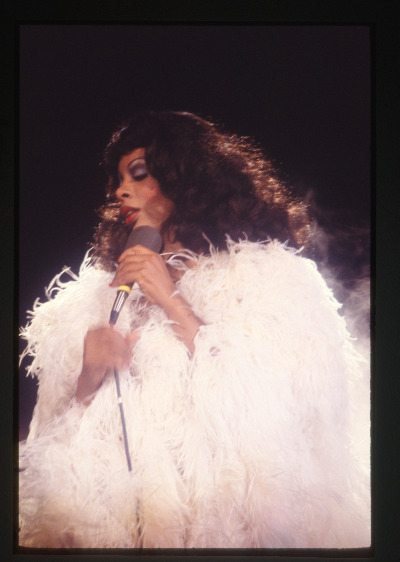
POV: Exactly. Your film would be far easier for some audiences if you cut out that short sequence, yet its inclusion shows the grander mission to show all the facets of this three dimensional human, not just the person on the stage or the picture on the album cover.
BS: She made a hateful comment on the stage. She understood that that was not the right thing to say. What was then perpetuated was that she was massively homophobic. But she didn’t say what was quoted in article, and that’s why she did the lawsuit. I want to be clear about that.
POV: Is there a recording of her interview? Did the reporter literally make it up in order to cause chaos? Or was there a different story there?
BS: There are things that I’m not legally allowed to speak about, but that I uncovered in the making of this film that I wish I could speak about—of how that happened. It was done with an agenda, I will just say that.
POV: As a viewer, that was the one part of the film where I felt that there was something that you were wanting to be able to articulate but looking for ways to tell as much of the story as possible, but with some elements still uncovered.
BS: That moment had a direct impact, not just on her career and being “cancelled,” but on her personally. She has that as an asterisk on her legacy. When you see the film and you see who she was and what she represented, that hateful comment was the antithesis of what she represented in total. I think that was a really hard thing for her to bear. Her agenda was to spread love and share joy—she was deeply marked by this until now. We had to address it. We wanted to show that we understood the hurt and the pain that the comment possessed for the community, but also to try to let people decide for themselves.
RRW: That was all taking place over a ten-year period, and we could have made a whole film just about that. But then it would have left out the other point of view—the perspective, the way that we wanted to tell the story, which is being inside Donna’s head.
BS: Yeah, I could do a whole other film just on that, honestly.
RRW: There are three films right now in production about the disco demolition, and we could have simply broken down what that meant to Black people and queer people and what that was really about. As Bruce says in the film, this was a moment Donna never recovered from. Donna Summer may be embraced by the likes of Beyoncé, with a rich musical legacy that’s cherished, but the circumstances around these comments were something that she took to her deathbed.
BS: It was very tricky. As I said this to Roger many times, my lived experience, my sisters’ lived experience, when we would go on tour, when we would do the meet and greets, has been nothing but love from the gay community. She had so many people give her love, and that’s what we carried. She did a lot of outreach after the fact to say, “Listen, that’s not who I am.” As Roger was saying, it’s an asterisk on her legacy, and I think she understood that.
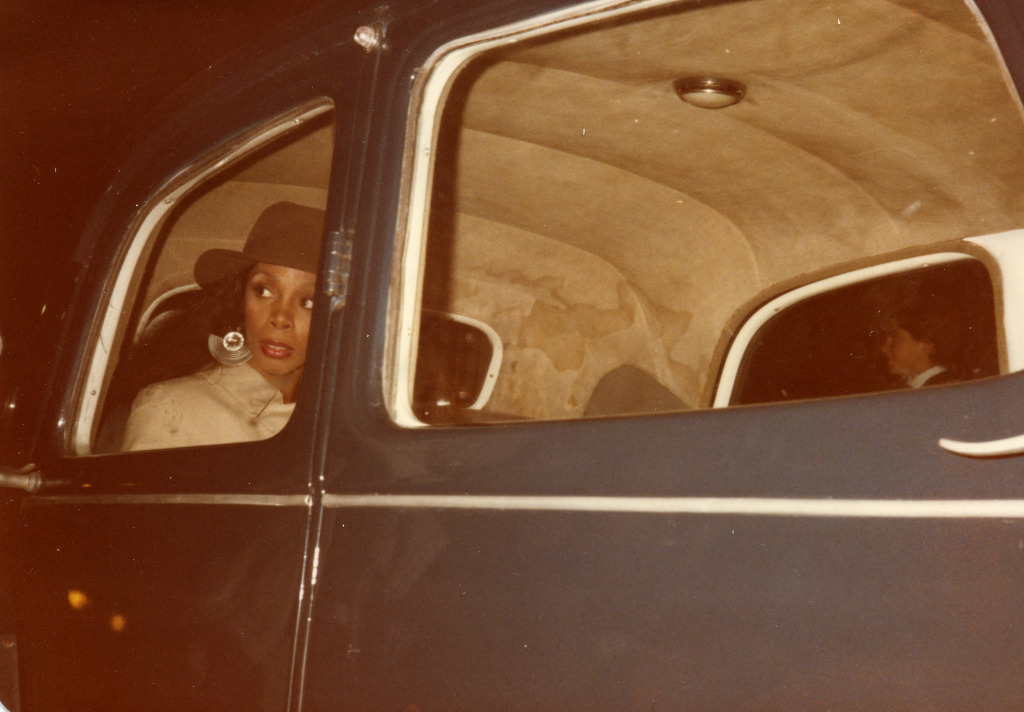
POV: Where in the process did you decide to focus on Donna the person, rather than, say, a deep dive into the recording of her hits, or the years spent in Munich studios with the likes of Moroder?
RRW: I don’t think we ever wanted to focus on the studio stuff. Donna’s first words are, “I have a secret life.” She starts out by telling you that she is not who she really who you think she is. This film is Donna’s voice, with her inner thoughts, and we were set on exploring her world, not just her time in the studio. It was more important to explore her conflicts with [her daughter] Mimi and motherhood at that point in her career. As Brooklyn says, her mother struggled with love and fame and all of these things. It’s a personal internal journey, not a superficial journey of a recording artist and their work.
I can’t tell you how many very famous people have approached me to make documentaries about them and I said no. I’d even start down the road and realize they just want a PR device that the label and Live Nation or whatever wants to use to sell their music and their tour. I make documentaries. I don’t make promotional pieces for artists.
POV: My law about music documentaries is that you should judge them apart from your love of the subject or their craft.
BS: Obviously, the music is important, but what value does it have coming from us? There’s somebody that can probably do a fantastic musicological report of her career, and why each song was this or that. It was obviously important to include the music because that is so much of who she was and it was her greatest means of expression. But for us, the choice of a song came down to how does it make you and the audience feel in a moment of the storytelling? Obviously, you needed to understand just how big she was and what the music was doing culturally, but how did that translate into her as an artist as a songwriter? There was always a very synergistic approach to how all of this was going to be woven together. It was all synergistic – when you see me and her sitting at the piano, there was no border between her creativity and artistry, and my parents’ creativity and artistry and the family. Everything was about creation, whether it was about music, whether it was making a great meal, whether it was creating a moment. That’s what our life was about.
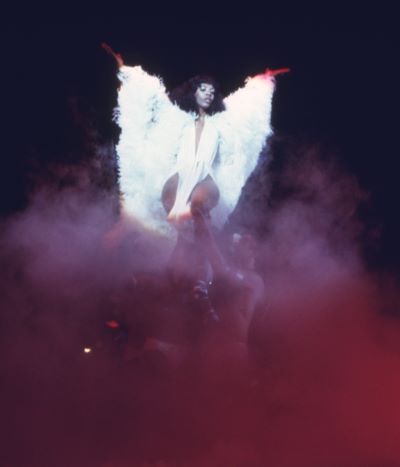
POV: Roger, you work in both dramas and non-fiction. Can you talk about specific films you look to for inspiration, to avoid, or others that held keys to getting this one right?
RRW: Each film is unique. It has its own language and voice. I look in that material and that experience to wade through the forest and find the unique rock, the unique tree, the unique thing that makes it special. Brooklyn and I, pretty much from the beginning, were on the same page in that I saw this almost like one giant home movie. That was really the inspiration for everything, from its graphic treatment, its presentation, and in the incredible editing of Enat Sidi who did The Wolfpack. It was about piecing together a puzzle to tell a complex story. Now, many films do that, so all of the great archival movies inspire me. I just knew that I didn’t want it to be was your classic talking heads style.
BS: We made that decision very early on in the process.
RRW: We did these long, six-to-seven hour audio interviews with everyone. They were able to really open up in a way that they would never have with a camera in their face. Even Donna’s abuser, Peter, talked to us and really opened up. Of course, we’re all inspired by Asif [Kapadia]’s brilliant work, and heading towards that mountaintop that is Amy.
POV: Is it reductive to call it a music documentary? It’s a documentary about a woman, and her métier is music.
BS: Though I will say there is a lot of music in the film, you know. [Laughs]
POV: Let’s talk song selection, then! How did you make up the film’s playlist?
BS: Certain songs that we felt a responsibility to include, but we also were sitting on an archive of things that people hadn’t heard before. We happened upon the original demo for “Bad Girls,” for example. I think ultimately we were able to choose songs that helped us tell the story in the moment. So while it’s not a typical music doc, it is a music doc. Music is instrumental in telling the story.
POV: Digging into your mom’s past might not always pleasant but must have been revelatory. How did it make you and your relationship with your memory of your mom change?
BS: Being a mother gave me so much grace for her and understanding on a deeper level for all that she experienced and went through. There are so many times when she could have buckled under pressure, or let the world defeat her, and it almost did! But she persevered. I think that I just have so much deeper appreciation and grace for who she was as a musician, as an artist, and as a person. I’m left with a lot of gratitude, and I’m changed from doing this project in so many ways. I have a lot of gratitude that God chose her to be my mother, in all her complexities. So I feel very grateful to have had this opportunity to do the process.
POV: Tell me one thing that Roger taught you that you didn’t know you didn’t know.
BS: On thing that Roger would always say to me is that I knew what I was doing. This is my first film, and he allowed me to trust myself. He never made me feel insecure about an idea that I had. I think that is such a lesson and a testament to who Roger is. He’s very generous of spirit and he is a true artist when it comes to storytelling. At the end of the day, he wants the truth, and that’s what I wanted. As an actor, that’s what I’m always searching for, the truthful inspiration of why somebody does something.




